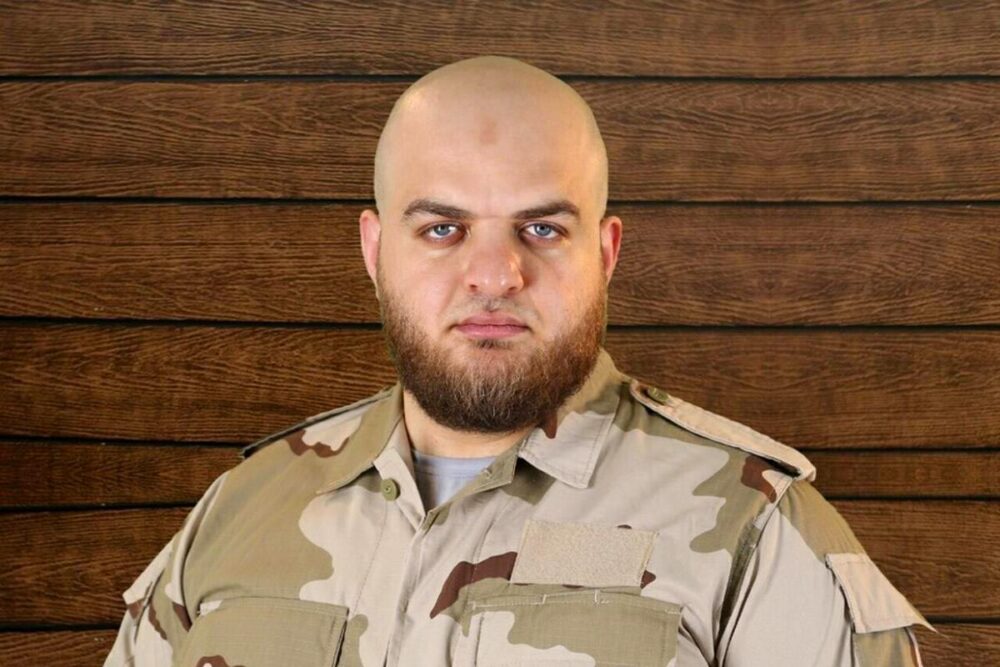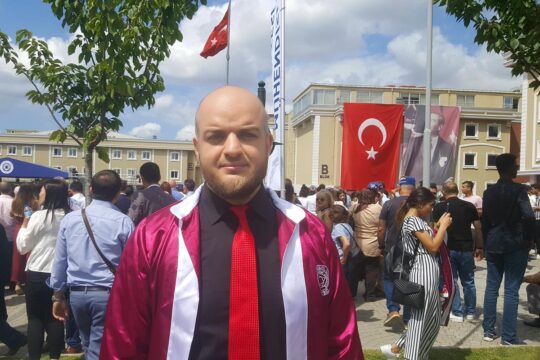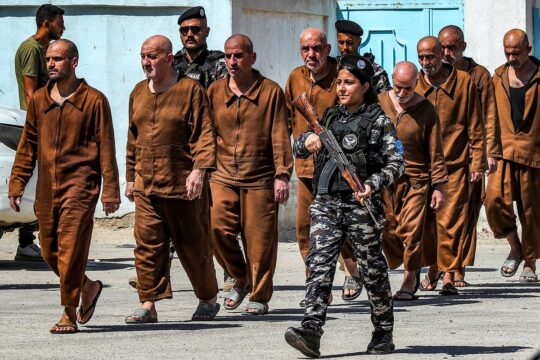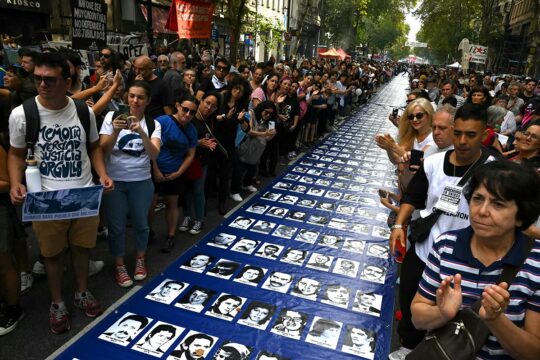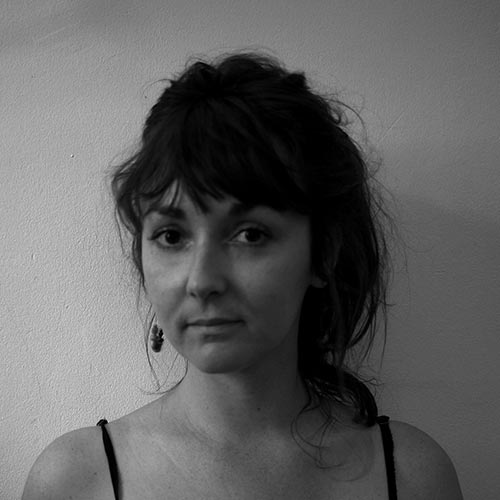“Finally!” That’s how some Syrians who had come to hear the Paris Assize Court’s decision, expressed their relief as, moved to tears, they left the final hearing of the first “Syrian” trial held in France in the presence of the accused.
Former Syrian rebel, Majdi Nema, alias “Islam Alloush”, was sentenced on 28 May 2025 to ten years imprisonment for complicity in war crimes, for having “knowingly facilitated” the conscription of minors aged 15 to 18. He was found guilty of participating in a “conspiracy” with the rebel group Jaysh al-Islam to prepare for war crimes. He contributed to this “in particular” through his activities as a spokesperson, intelligence officer, and strategic advisor, the presiding judge said when reading the verdict.
The crimes in which he participated were committed in eastern Ghouta between 2013 and 2016, a region located on the outskirts of Damascus, besieged and bombed by Bashar al-Assad’s regime and the scene of multiple abuses against the civilian population, attributed to rebel groups that had entrenched themselves there. Jaysh al-Islam exercised political and military control there until 2018, when the regime regained control of the region.
Recognition of Jaysh al-Islam’s crimes
More than Nema’s responsibility for the abuses committed by the group, “the most important thing is the recognition of Jaysh al-Islam’s crimes,” Ahmed*, one of the three Syrians who brought civil action, told Justice Info. While he is satisfied with the conviction of the former spokesman as an “accomplice”, Ahmed also says he is “personally” ready to see him released from prison: “He has already served five years [in pretrial detention] and now that the regime has fallen, it changes everything for me. Of course, we must not forget the crimes. But Islam Alloush is not the most responsible.” And “unfortunately”, he adds, “there are members of Jaysh al-Islam who are much more dangerous, still in Syria.”
Organized under the principle of universal jurisdiction, the trial against Nema effectively recognized the war crimes committed by Jaysh al-Islam. In recent weeks, the defence repeatedly expressed regret that the proceedings have often focused on the group’s abuses rather than on proving Nema’s guilt, which it has repeatedly described as “small fry” to emphasize his alleged “limited” responsibility. But the prosecution and the lawyers for the civil parties stood their ground: in their closing arguments and pleadings, they considered that in order to prove Nema’s responsibility for the acts he was accused of – in particular those relating to participating in a conspiracy to commit war crimes – it was first necessary to prove that the Jaysh al-Islam group had committed those crimes.
Before ruling on Nema’s individual responsibility, the court composed of three professional judges and six lay jurors first had to decide whether or not members of Jaysh al-Islam had formed a conspiracy to commit war crimes. A total of seven categories of crimes were examined, including acts of torture, arbitrary imprisonment, recruitment of minors, kidnapping and abductions, humiliating treatment, and summary executions. The court answered “yes” to all but the crimes committed in the city of Damascus, which were not retained.
On the civil parties’ side, lawyer Marc Bailly welcomed the verdict at the end of “a long journey” and the fact that all Jaysh al-Islam’s crimes had been recognized. In its closing arguments, the defence had acknowledged the war crimes committed by the rebel group, with the exception of the recruitment of children under the age of 15.
Convicted of recruiting minors
Beyond the crime of “conspiracy,” Nema was primarily accused of assisting in the enlistment or conscription of minors into the Jaysh al-Islam group, by helping with their recruitment and training, and participating in the dissemination of propaganda intended to recruit and indoctrinate them.
To rule on this crime, two separate questions relating to Nema’s responsibility were put to the jury and the court. One concerned his responsibility for the conscription or recruitment of young people under the age of 15, which is considered a crime under international and humanitarian law. The other concerned his responsibility for the forced conscription of minors aged between 15 and 18. Nema was acquitted of the first charge but convicted of the second.
For Bailly, this important decision will strengthen “the interpretation of this offense, which had never been used in French law,” in connection with the state of necessity caused by the attacks of the regime in power on the eastern Ghouta region. “Is it so unthinkable to imagine that a minor aged between 15 and 18, who has lost his entire family in the regime’s bombings, might at some point decide that he wants to fight? And that he chooses Jaysh al-Islam because, in fact, they are the ones who give the best pay?,” argued defence lawyer Romain Ruiz in his closing statement, pointing out that, in his opinion, the responsibility of the regime was the “state of necessity”.
“Complicity” dropped by the prosecution
In the end, “the Assize Court found that a crime had been committed,” said Bailly, for whom this court decision was not a foregone conclusion. A few days earlier, the prosecution had requested an acquittal on the charge of complicity in war crimes, considering that the evidence at its disposal consisted of “material acts resulting from his actions within the conspiracy” and that it was necessary to establish “distinct material acts to prove each of the offenses.” However, the two prosecutors regretted that the trial had not demonstrated how Nema had “knowingly aided or assisted” in the recruitment of minors into Jaysh al-Islam. Important witnesses were never heard during the proceedings. This was particularly the case for “witness Xh3”, who was only interviewed anonymously by investigators during the judicial investigation, without confrontation with the defence.
Although several witnesses testified before the court about the forced recruitment of some of their relatives, these testimonies constitute “indirect evidence” in the eyes of the prosecutor. “It is not a matter of questioning the testimonies we have heard, but of applying the law,” argued Sophie Havard, anti-terrorism deputy prosecutor, during her closing arguments. And just like the anonymous statements or information submitted to the proceedings, “they are not sufficient to establish complicity.”
During his closing argument on 26 May Bailly made no secret of his disagreement. In his view, hearing these anonymous witnesses before the court was not the only way to characterize Nema’s complicity. Citing a ruling by the Court of Cassation in the Bygmalion case, he explained that while complicity usually involves “a positive act prior to or concurrent with the commission of the crime,” complicity by omission or negligence is also possible “if the person fully endorses the criminal intent and the acts committed.” Similarly, complicity could be characterized by a “subsequent act,” meaning an act that occurs after the crime, allowing, for example, the crime to be concealed, its continuity to be ensured, or the principal perpetrator of the crime to be protected. In this sense, the lawyer argued, it is possible to consider that Nema enabled the continuation of Jaysh al-Islam’s criminal acts – “acts that he could not have been unaware of” – by contributing to the group’s propaganda and enabling its financing.
Out of court Ruiz had argued that “it has never been proven that Majdi Nema was informed in advance, internally, that child soldiers were going to be conscripted or enlisted, whether they were older or younger than 15 years old. Nor is there any evidence that he was told that his role as spokesperson would be to cover up this reality.”
During the hearing, a witness for the civil party testified that he had questioned Nema about the presence of minors in a training camp in eastern Ghouta, without getting an answer from Nema. This does not constitute “sufficient warning”, according to Ruiz, nor does it prove that Nema ignored reliable information received internally, “as it was the case in the Bygmalion case.”
The professional magistrates and jurors ruled otherwise.
* Pseudonym


